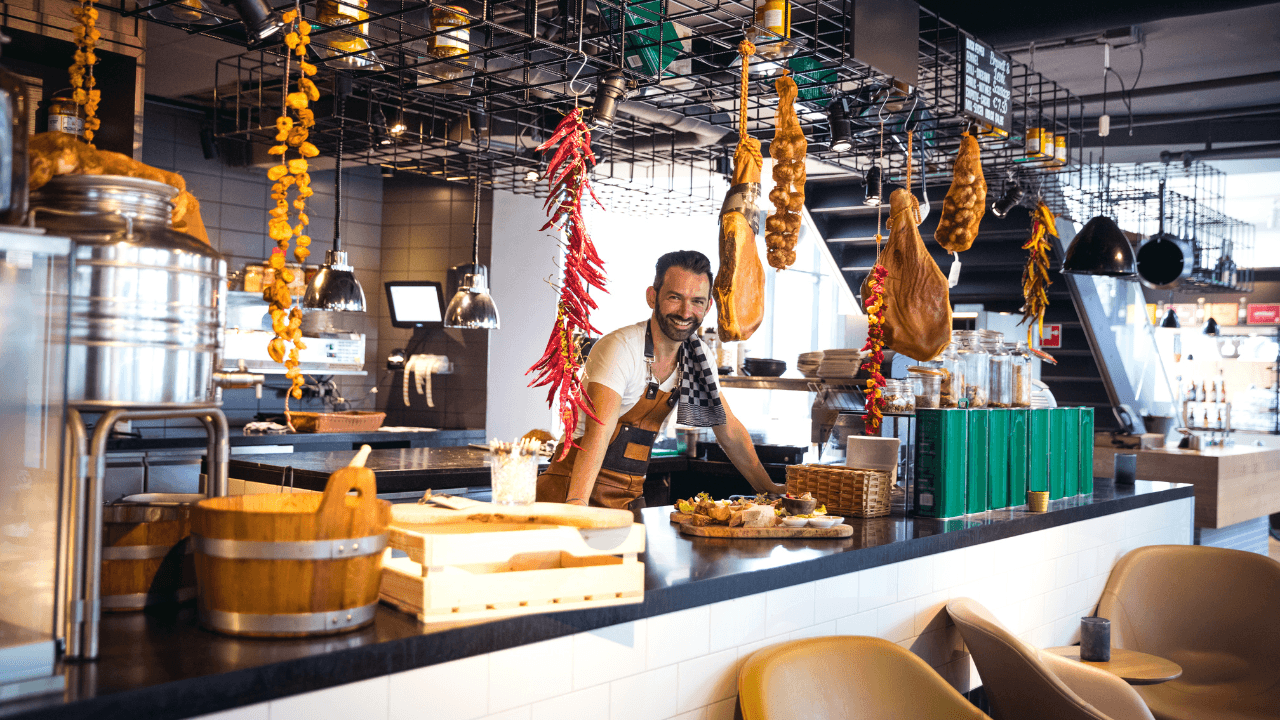- What are Common Local Visibility Struggles Faced by Restaurant Owners?
- Best Local SEO Strategies for Restaurants
- 5 Tips on Prioritizing Some Local Restaurant SEO Strategies
- A Strategic Conclusion to Local SEO Prioritization for Restaurants
Welcome to the world of local SEO strategies tailored for restaurants—an essential roadmap for ensuring your establishment stands out in the local market.
In this guide, we’ll cut through the complexities and dive straight into practical strategies designed to boost your restaurant’s local visibility, attract more customers, and dominate the local dining scene.
Let’s explore impactful steps to make your restaurant the go-to choice for hungry patrons in your neighborhood.
What are Common Local Visibility Struggles Faced by Restaurant Owners?
For restaurants aiming to dominate the local market, several common struggles can impede visibility and hinder business growth.
These challenges include:
Online Presence and Visibility
Establishing and maintaining a robust online presence can be challenging. Restaurants may struggle to create and update accurate business listings, manage reviews, and optimize their website for local search.
Competition from Other Establishments
The local market can be competitive, with numerous restaurants vying for attention. Standing out amidst the competition becomes a significant struggle, especially for new or smaller establishments.
Inconsistent Information Across Platforms
Inaccurate or inconsistent business information on online platforms, directories, or review sites can confuse potential customers. Maintaining uniform and up-to-date details is crucial for local SEO.
Negative Reviews and Reputation Management
Negative reviews can significantly impact a restaurant’s reputation. Managing online reviews, addressing customer concerns, and actively seeking positive feedback can be challenging but essential.
Lack of Local Search Engine Optimization
Restaurants often overlook the importance of local search optimization. Without a well-optimized Google My Business profile, local keywords, and relevant content, visibility in local search results diminishes.
Limited Online Marketing Budget
Small or local restaurants may have limited budgets for online marketing efforts. This constraint can limit the reach of digital advertising, making it challenging to compete with larger establishments.
Adapting to Changing Consumer Behavior
Rapid changes in consumer behavior, including shifts toward mobile searches and online reviews, can be challenging for restaurants to adapt to. Staying ahead of such trends is crucial for maintaining visibility.
Difficulty in Targeting the Right Audience
Identifying and reaching your intended target audience can be tricky. Without a clear understanding of the local market and customer preferences, restaurants may struggle to effectively tailor their offerings and marketing efforts.
Limited Local Partnerships
Collaborating with local businesses and building partnerships can enhance visibility. However, establishing these connections can be challenging, especially for restaurants new to the area.
Measuring Marketing ROI
Restaurants may find it challenging to measure their marketing efforts’ return on investment (ROI). Determining which marketing strategies are effective and allocating resources accordingly can be difficult.
Adapting to Algorithm Changes:
Search engine algorithms are constantly evolving. Keeping up with changes and adjusting SEO strategies accordingly can be a persistent challenge for restaurant owners.
Addressing these struggles requires a strategic and proactive approach. Implementing effective local SEO strategies, actively managing online reputation, and staying attuned to the local market dynamics can significantly enhance a restaurant’s visibility and success in the local market.
Your Inbox, Your Rules!
Tailor your newsletter with the topics you're most interested in.
Best Local SEO Strategies for Restaurants
Local SEO strategies are crucial for restaurants to enhance their online visibility and attract customers in their immediate vicinity.
Here’s a breakdown of effective local SEO strategies and how to use them:
Optimize Google My Business (GMB) Profile
- How to Use Effectively:
- Claim and verify your GMB listing.
- Ensure accurate business information, including name, address, phone number, and business hours.
- Add high-quality photos of your restaurant.
- Encourage and respond to customer reviews.
Local Keyword Optimization
- How to Use Effectively:
- Identify local keywords relevant to your restaurant (e.g., “best pizza in [your city]”).
- Incorporate such keywords naturally into your website content, meta descriptions, and headings.
- Include location-based terms in your URL, if possible.
Create Localized Content
- How to Use Effectively:
- Develop blog posts, articles, or pages highlighting local events, community engagement, or partnerships.
- Showcase your involvement in local initiatives to connect with the community.
- Use local landmarks or attractions in your content.
Online Reviews and Reputation Management
- How to Use Effectively:
- Encourage your satisfied customers to write positive reviews on platforms like Google, Yelp, and TripAdvisor.
- Respond quickly and professionally to all reviews (both positive and negative), addressing concerns and expressing gratitude.
- You can use positive reviews in marketing materials and on your restaurant website.
Local Link Building
- How to Use Effectively:
- Seek partnerships with local businesses, organizations, or influencers for mutually beneficial links.
- Participate in local events, sponsorships, or collaborations, earning links in return.
- Ensure your website includes links to local resources or events.
Mobile Optimization
- How to Use Effectively:
- Optimize your site for mobile devices to accommodate the increasing number of mobile searches.
- Ensure fast loading times and a user-friendly mobile experience.
- Test your website’s mobile responsiveness regularly.
Local Schema Markup
- How to Use Effectively:
- Implement schema markup to provide local search engines with detailed information about your restaurant.
- Include markup for your business name, address, phone number, operating hours, and cuisine type.
- Utilize Google’s Structured Data Testing Tool to verify your markup.
Social Media Engagement
- How to Use Effectively:
- Maintain active and engaging social media profiles on Facebook, Instagram, and Twitter.
- Share updates about menu additions, promotions, and events.
- Encourage user-generated content and engage with your local audience.
Localized Online Advertising
- How to Use Effectively:
- Invest in localized online advertising campaigns targeting specific demographics in your area.
- Use geo-targeting features to narrow your ad audience to potential local customers near your restaurant.
- Monitor and adjust your ad campaigns based on performance.
Regular Website Updates
- How to Use Effectively:
- Keep your website content, menu, and contact information up to date.
- Implement a blog or news section for regular updates.
- Ensure your website is secure (HTTPS) and loads quickly.
Local Business Directories
- How to Use Effectively:
- List your restaurant on popular local business directories like Yelp, YellowPages, and TripAdvisor.
- Ensure consistent business information across all directories.
- Explore industry-specific directories related to the food and hospitality sector.
Monitor and Analyze Performance
- How to Use Effectively:
- Use tools such as Google Analytics and GMB Insights to monitor website and GMB performance.
- Track key metrics like website traffic, click-through rates, and customer actions.
- Analyze the effectiveness of local SEO strategies and make data-driven adjustments.
Implementing these local SEO strategies requires consistent effort and monitoring.
By combining these tactics, restaurants can establish a solid online presence, connect with the local community, and increase foot traffic and customer loyalty.
5 Tips on Prioritizing Some Local Restaurant SEO Strategies
Prioritizing local SEO strategies is crucial for efficient and effective implementation. Here are five tips to help you prioritize these strategies:
- Understand Your Business Goals
Before diving into local SEO, clearly define your business goals. Whether it’s increasing foot traffic, boosting online orders, or promoting a new menu, understanding your objectives will guide your prioritization.
Moreover, seeking the assistance of third-party services can streamline the optimization process for online orders and enhance your local SEO impact.
- Identify High-Impact Strategies
Assess local SEO strategies that will have the most significant impact on achieving your goals. Focus on tactics that directly align with your business priorities, such as optimizing Google My Business, local keyword targeting, or reputation management.
- Consider Immediate and Long-Term Benefits
Balance strategies that provide immediate results with those that contribute to long-term success.
For instance, optimizing Google My Business profile can yield quick restaurant visibility while consistently creating localized content that contributes to sustained online presence over time.
- Evaluate Resource Allocation
Consider the resources available for implementing local SEO. If you have a limited budget or a small team, prioritize strategies that can be effectively executed with your available resources.
For instance, concentrating on a well-maintained Google My Business profile might be more feasible than extensive link-building campaigns.
- Analyze Competitor Landscape
Research local competitors and analyze their online presence. Identify which strategies seem to be working for them and prioritize similar approaches.
This competitive analysis can provide insights into what resonates in your local market and help you tailor your strategies accordingly.
A Strategic Conclusion to Local SEO Prioritization for Restaurants
In local SEO for restaurants, the key lies in strategic prioritization—aligning your efforts with business goals, maximizing impact, and efficiently utilizing available resources.
Implementing local SEO strategies is key to boosting your restaurant’s visibility, and integrating with platforms like Orders.co can further enhance this effect.
Orders.co streamlines online ordering and improves customer experience, directly contributing to your local SEO efforts.
Its user-friendly interface and support for customer reviews amplify your online presence, making your restaurant more visible and attractive in local search results.
By combining effective local SEO tactics with the operational efficiency of Orders.co, your restaurant is well-positioned to dominate the local market.



